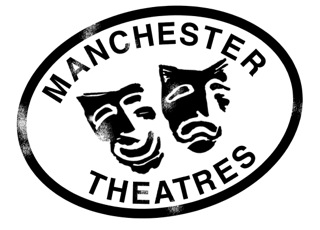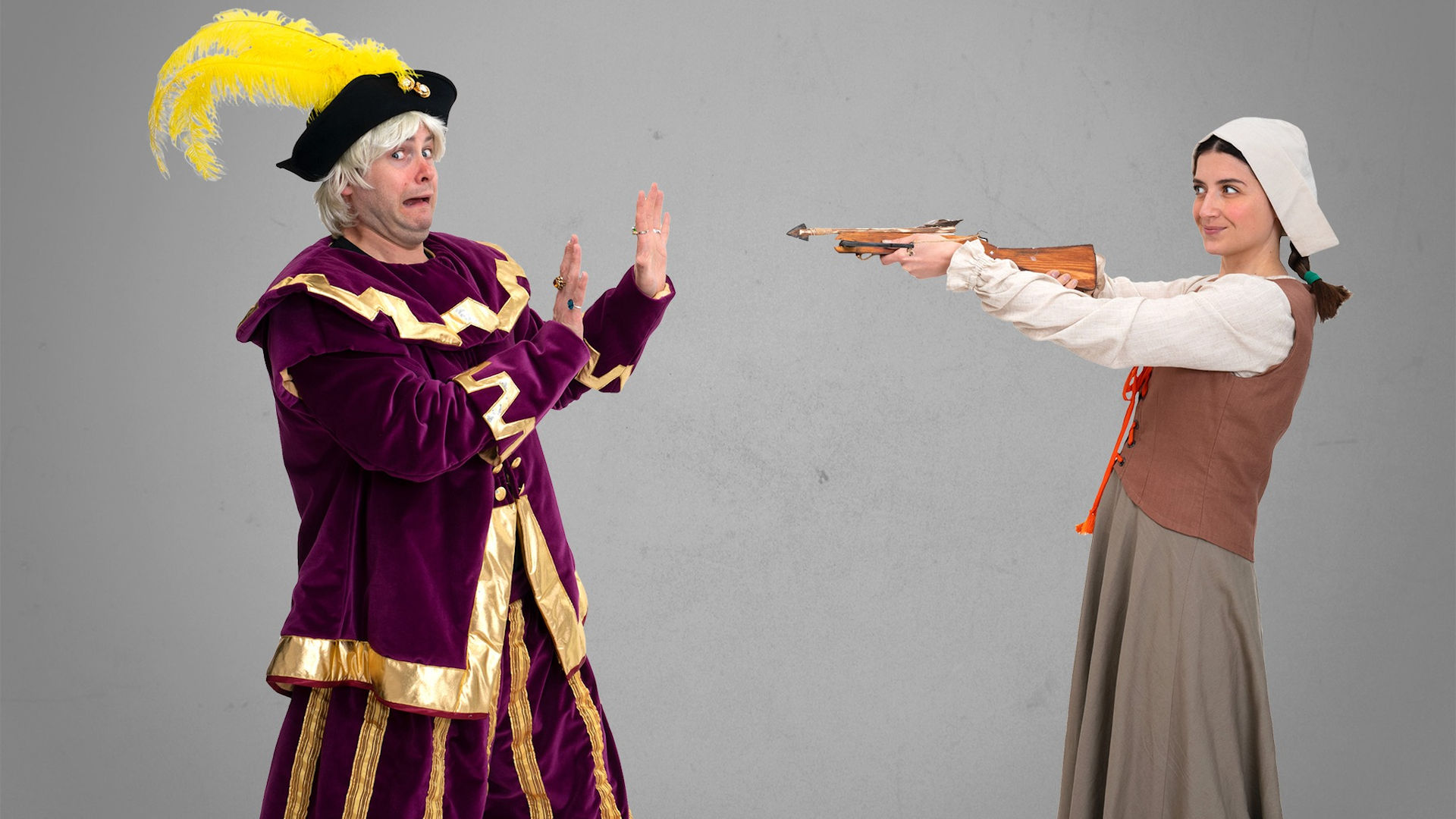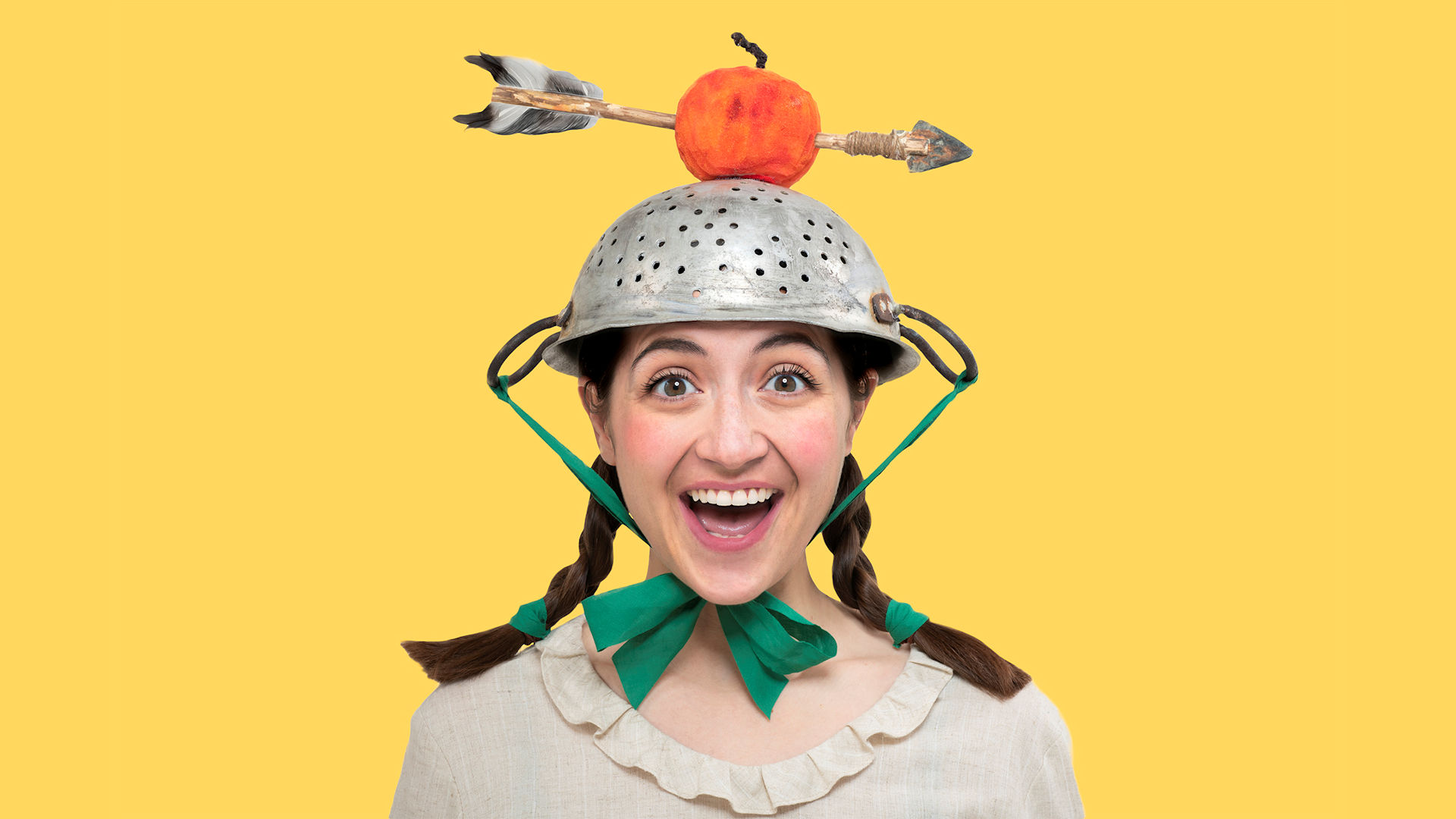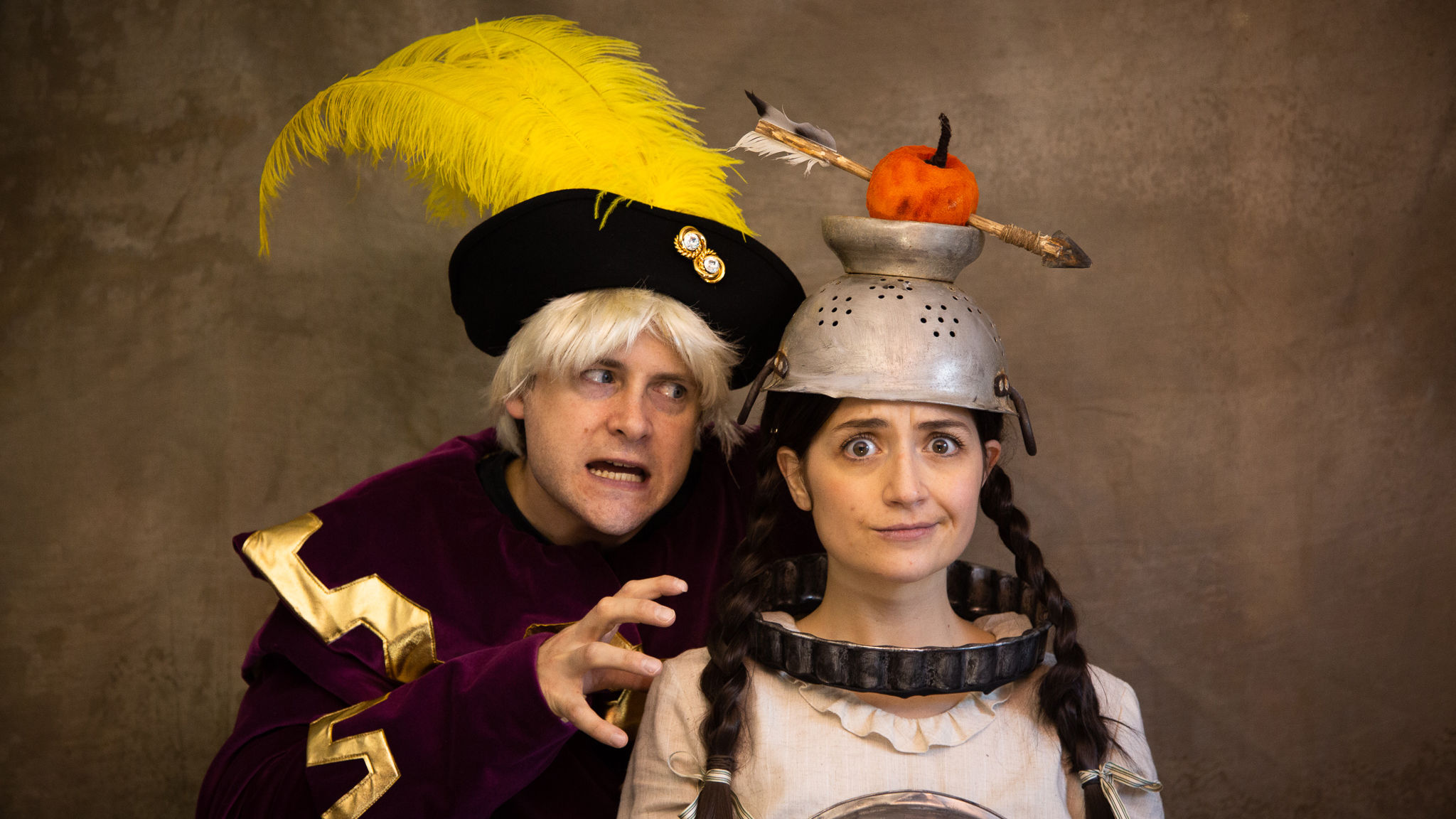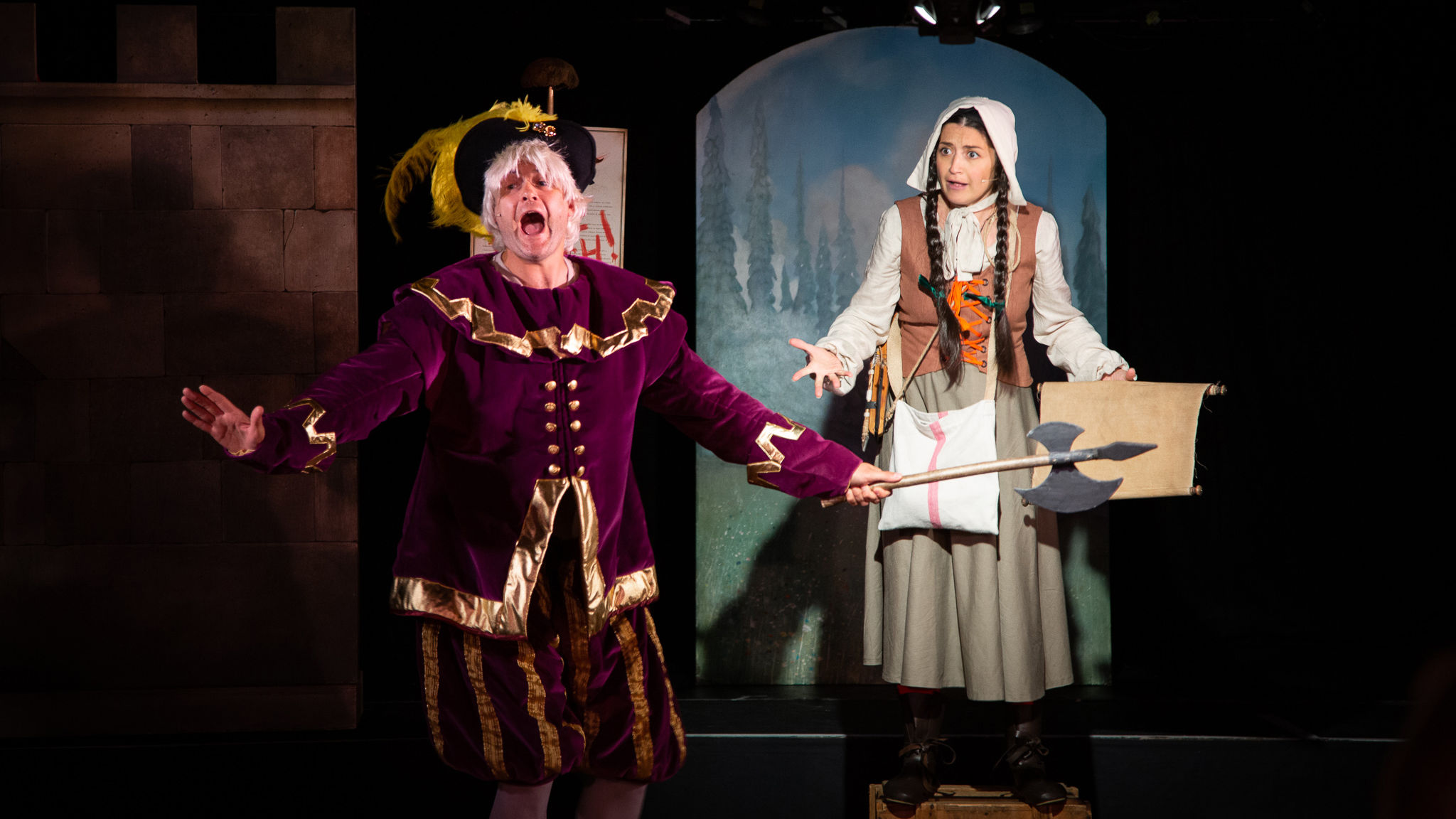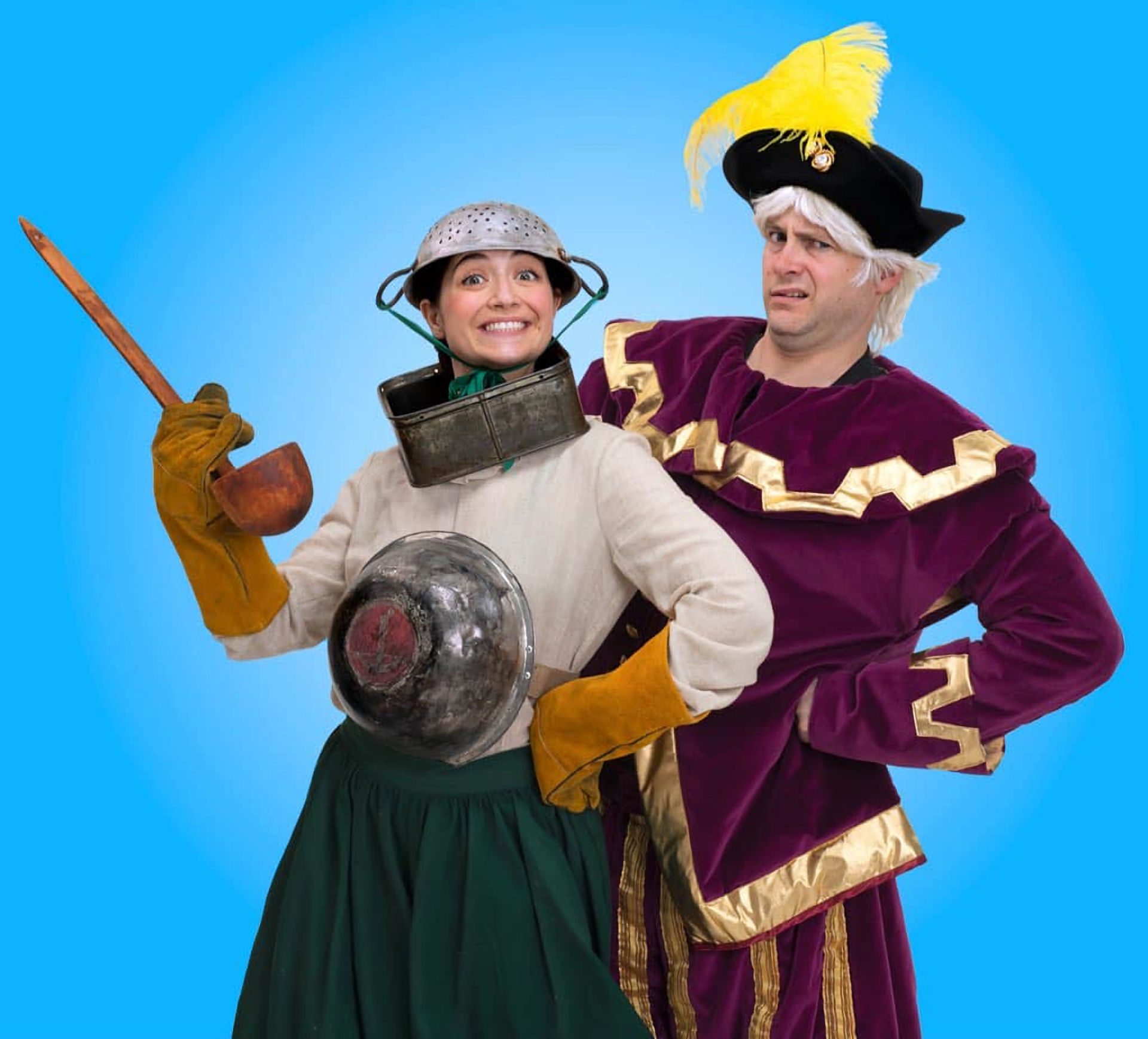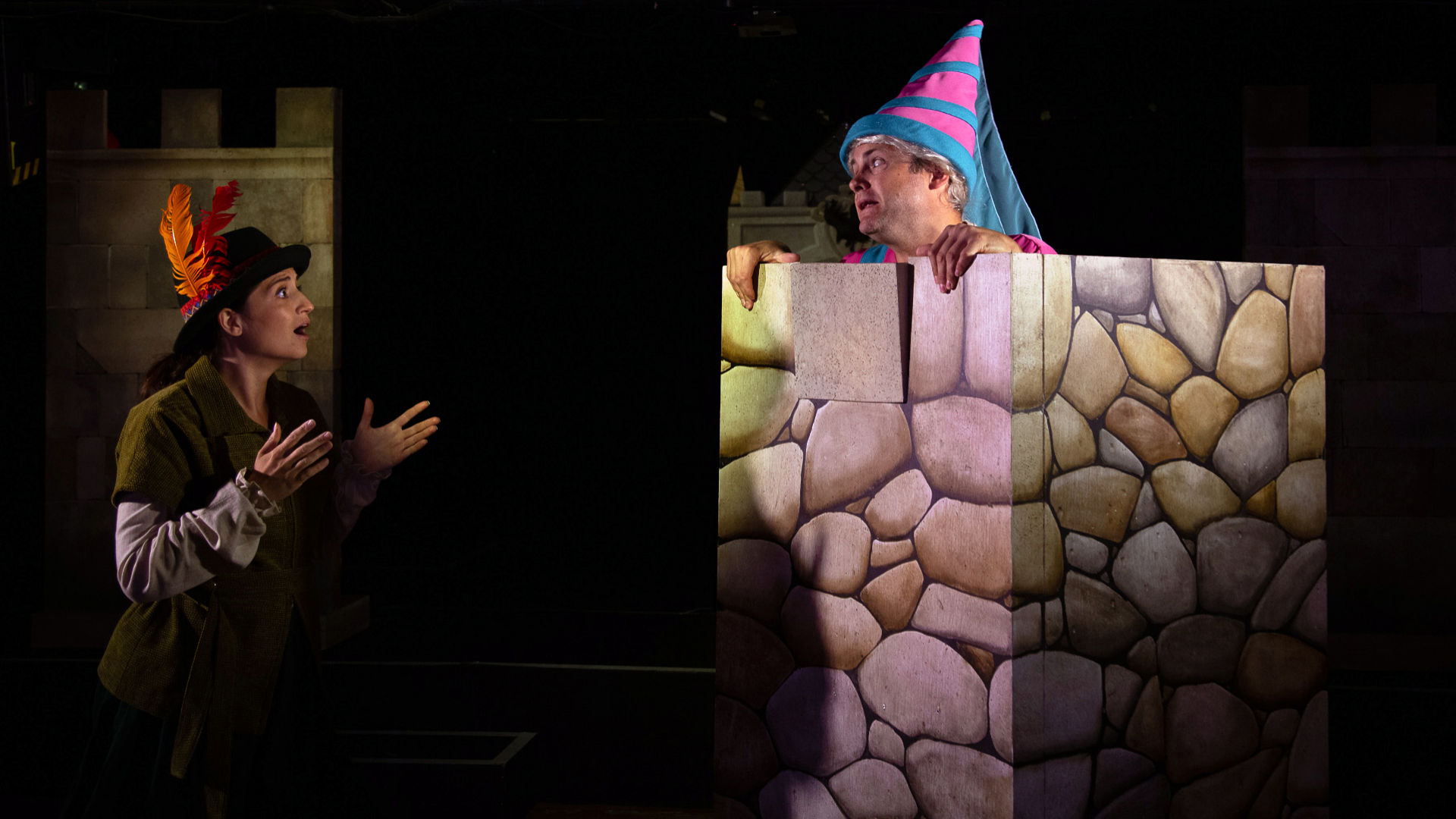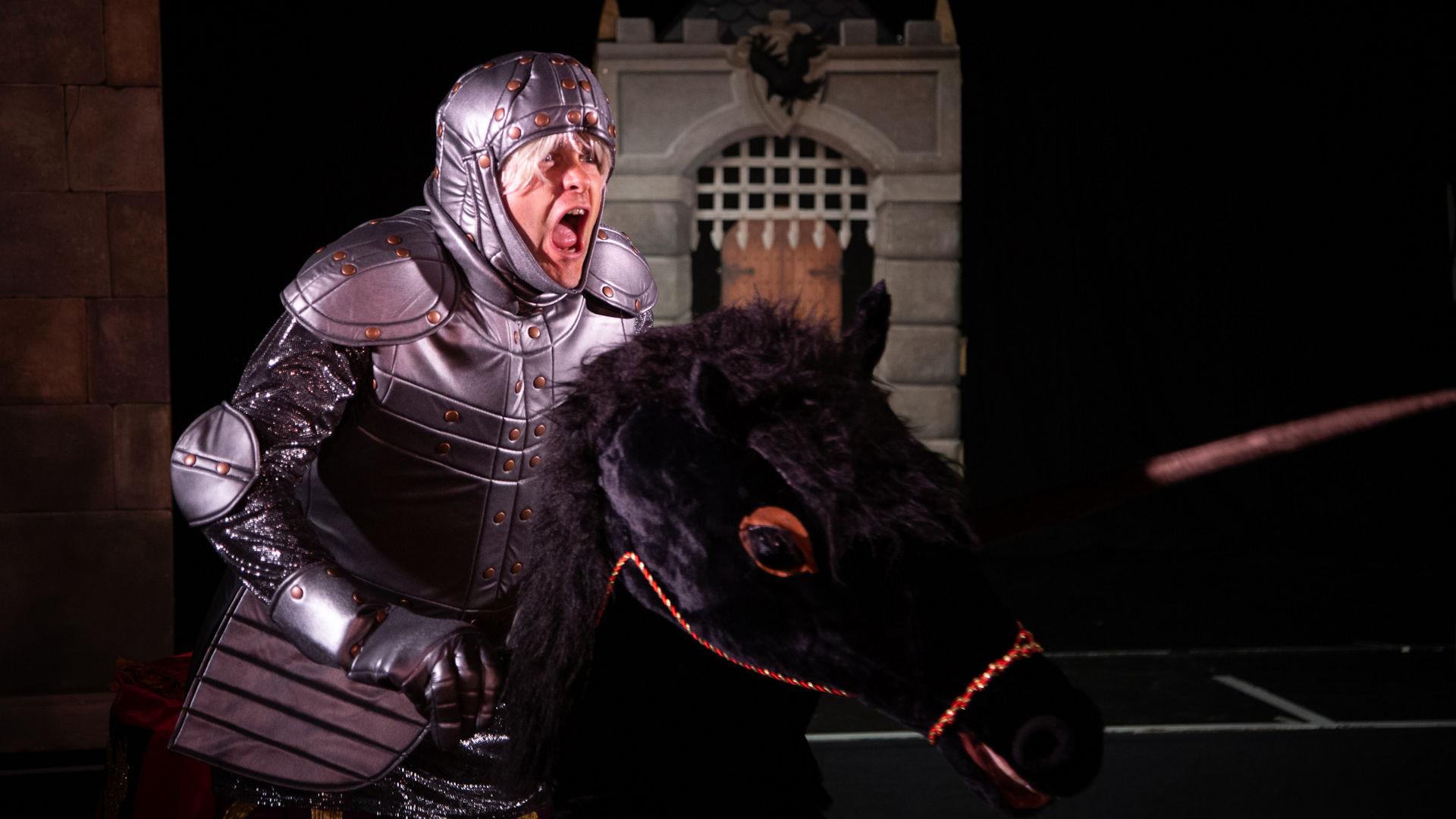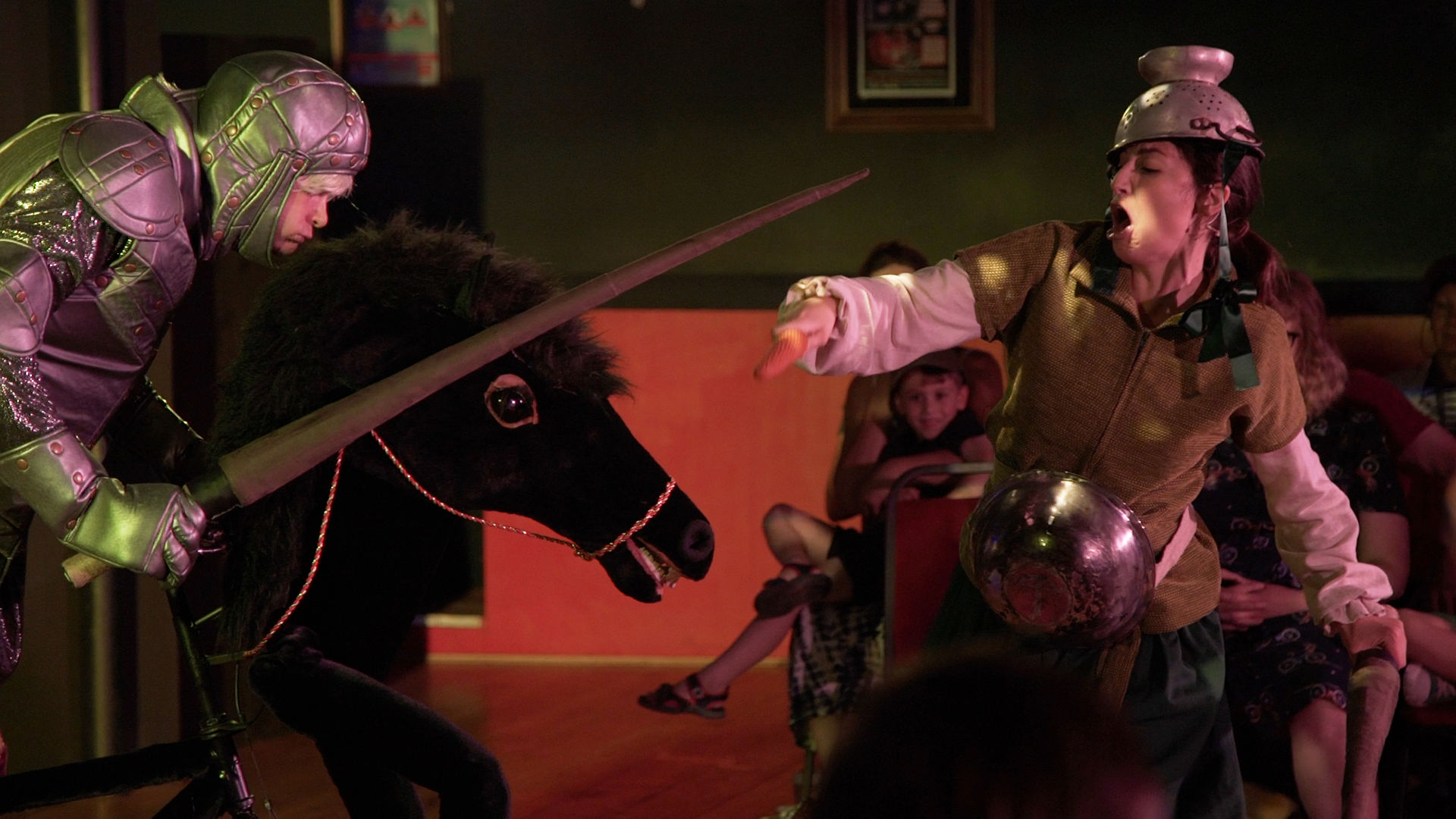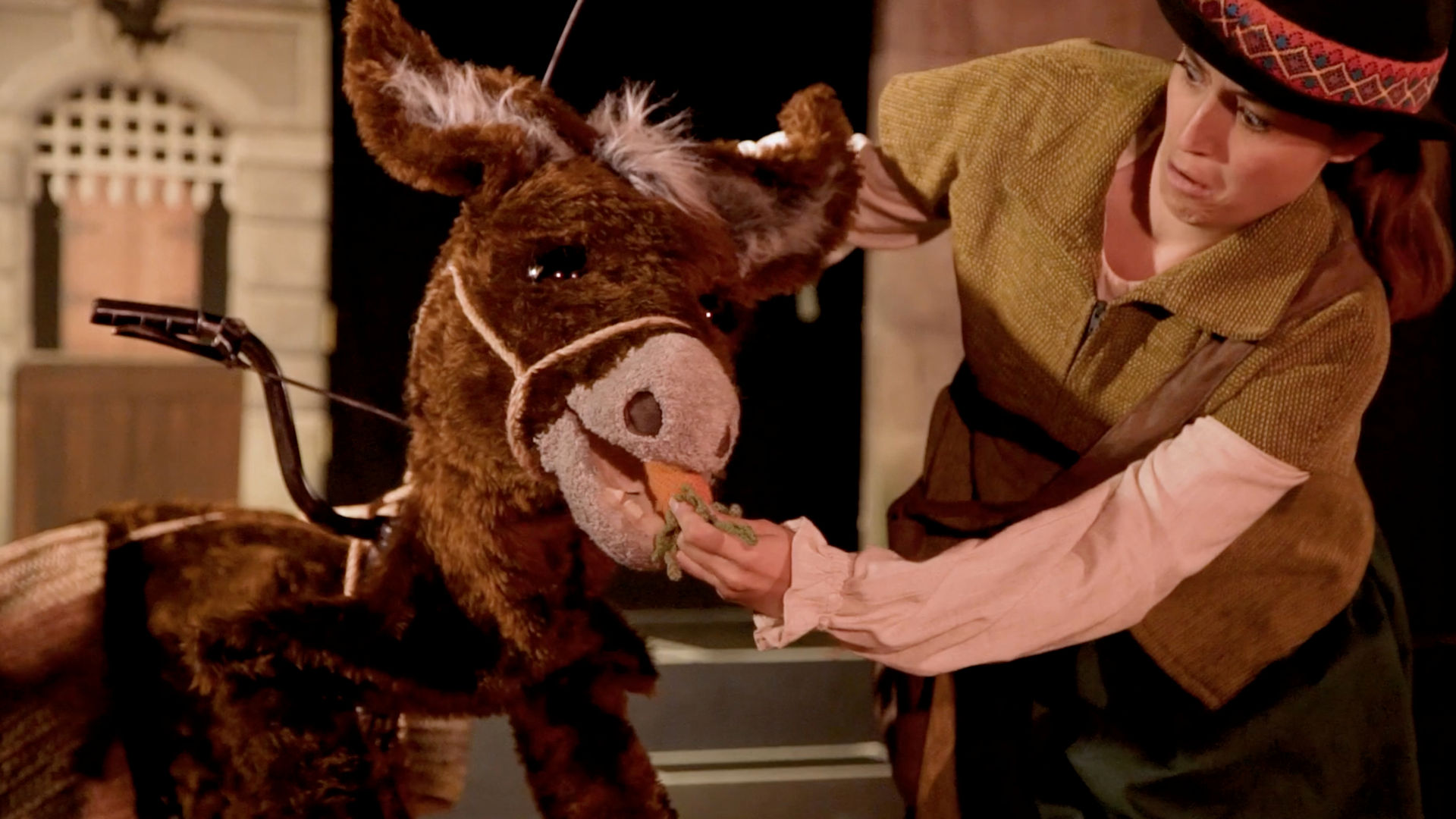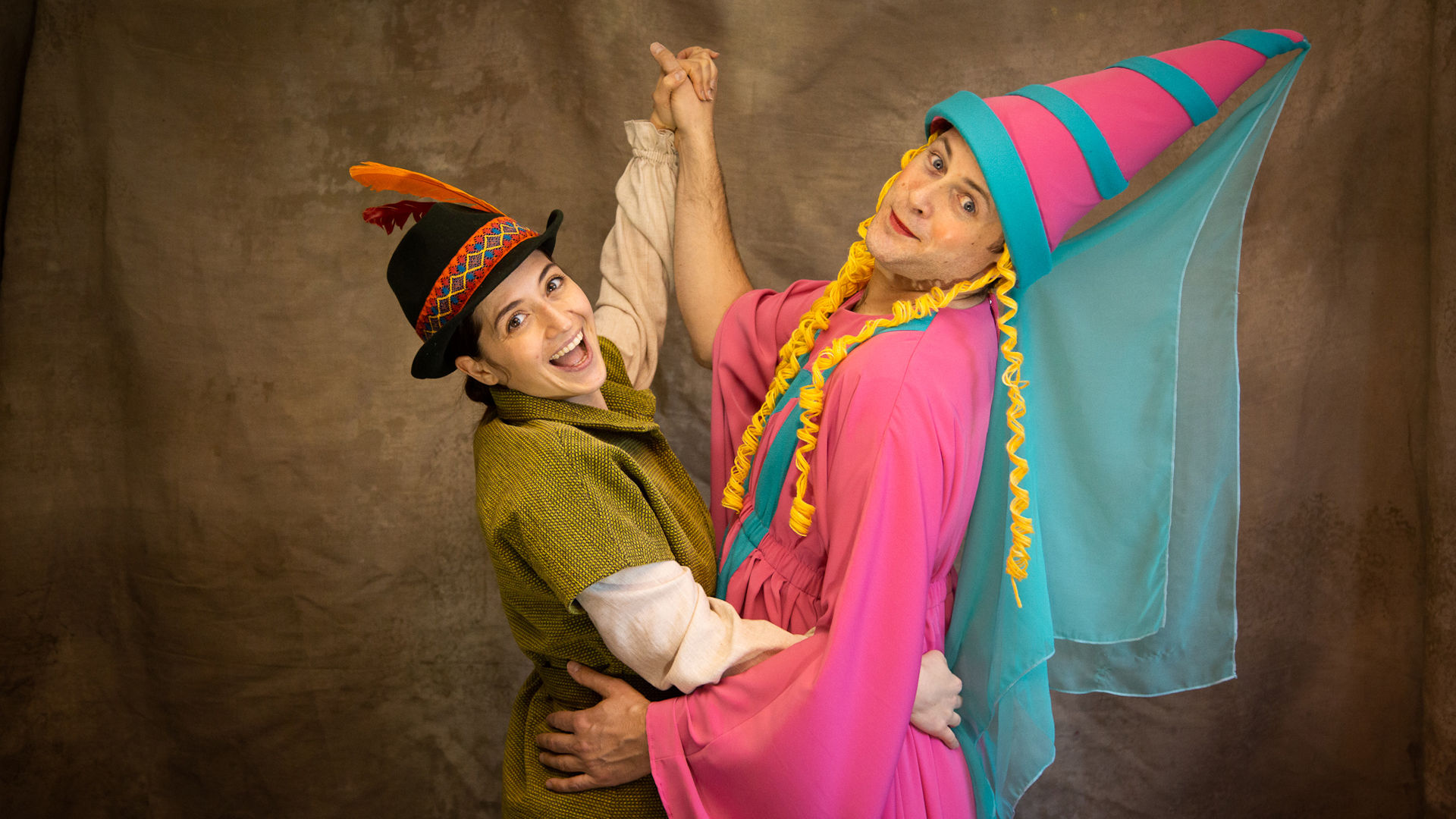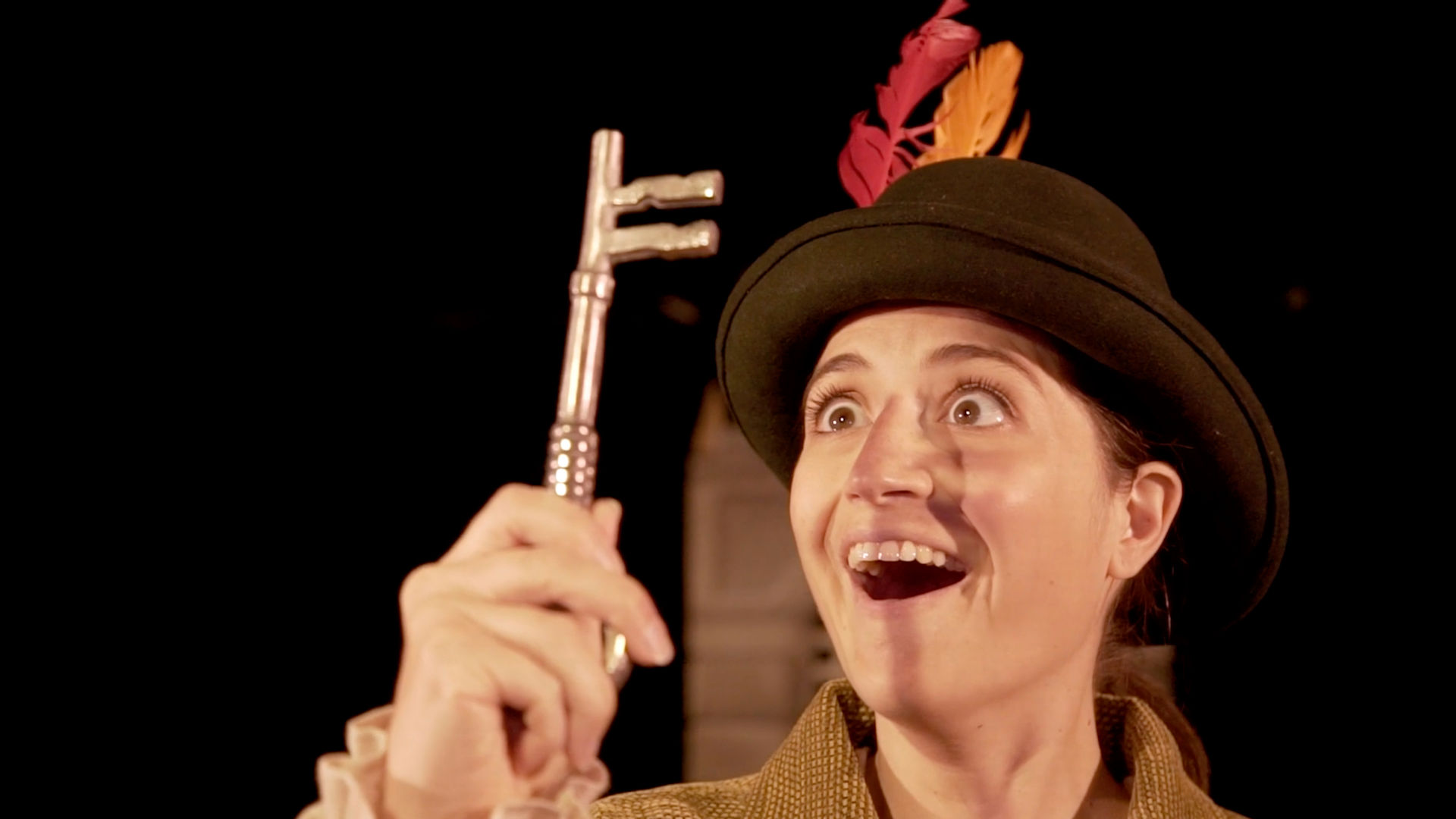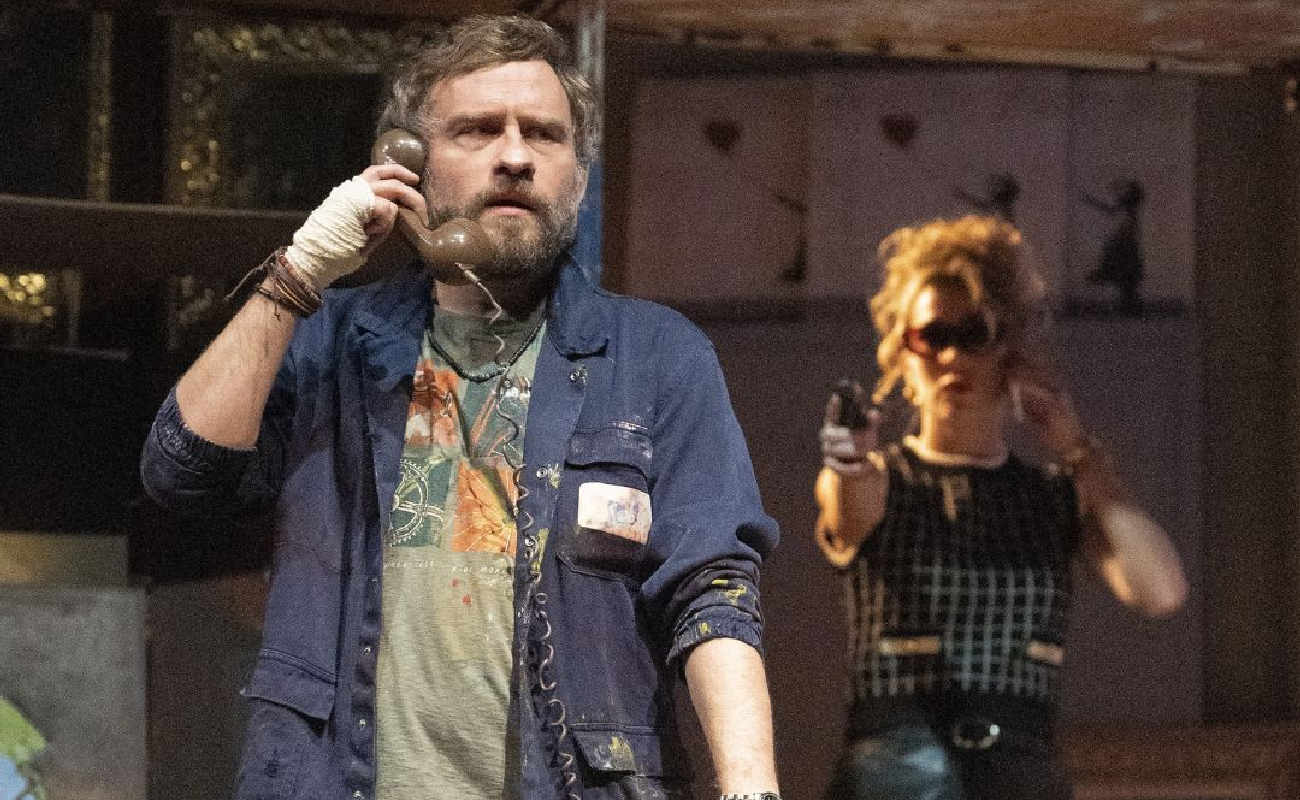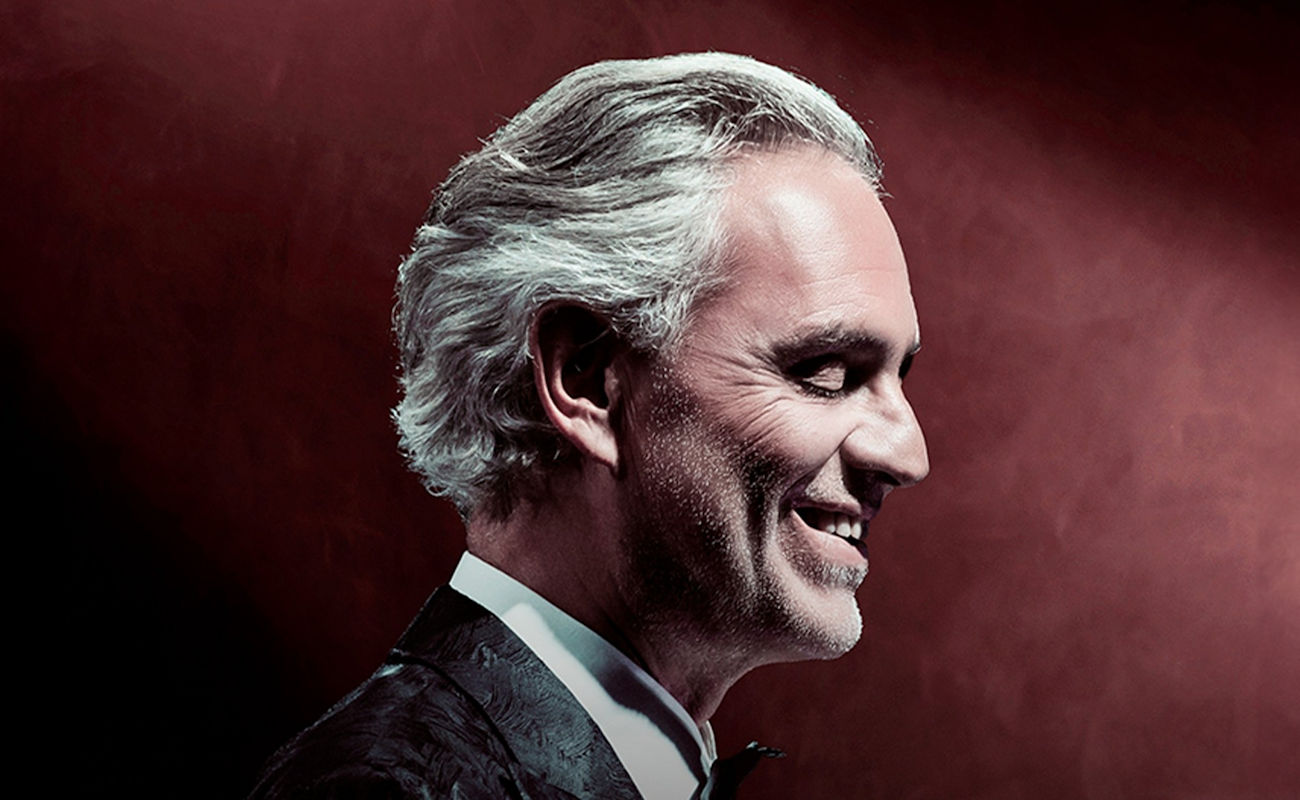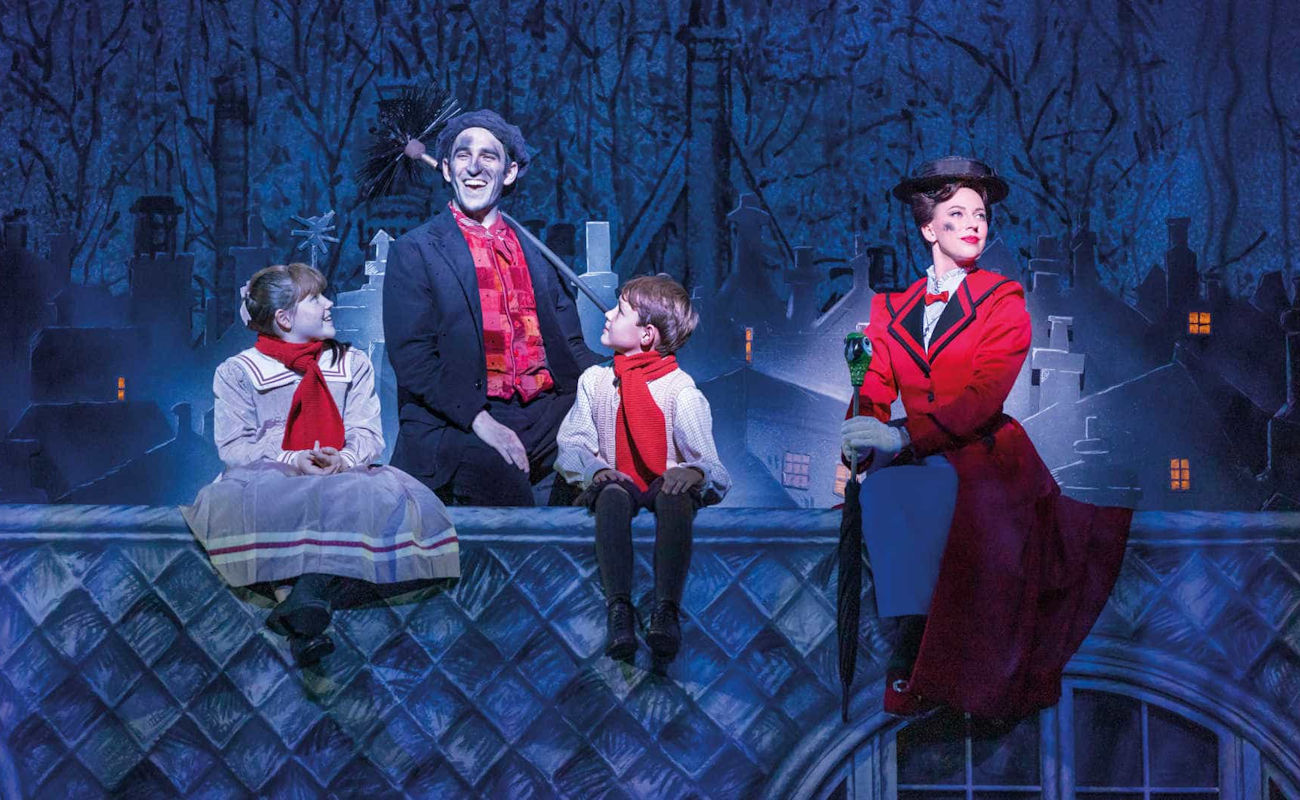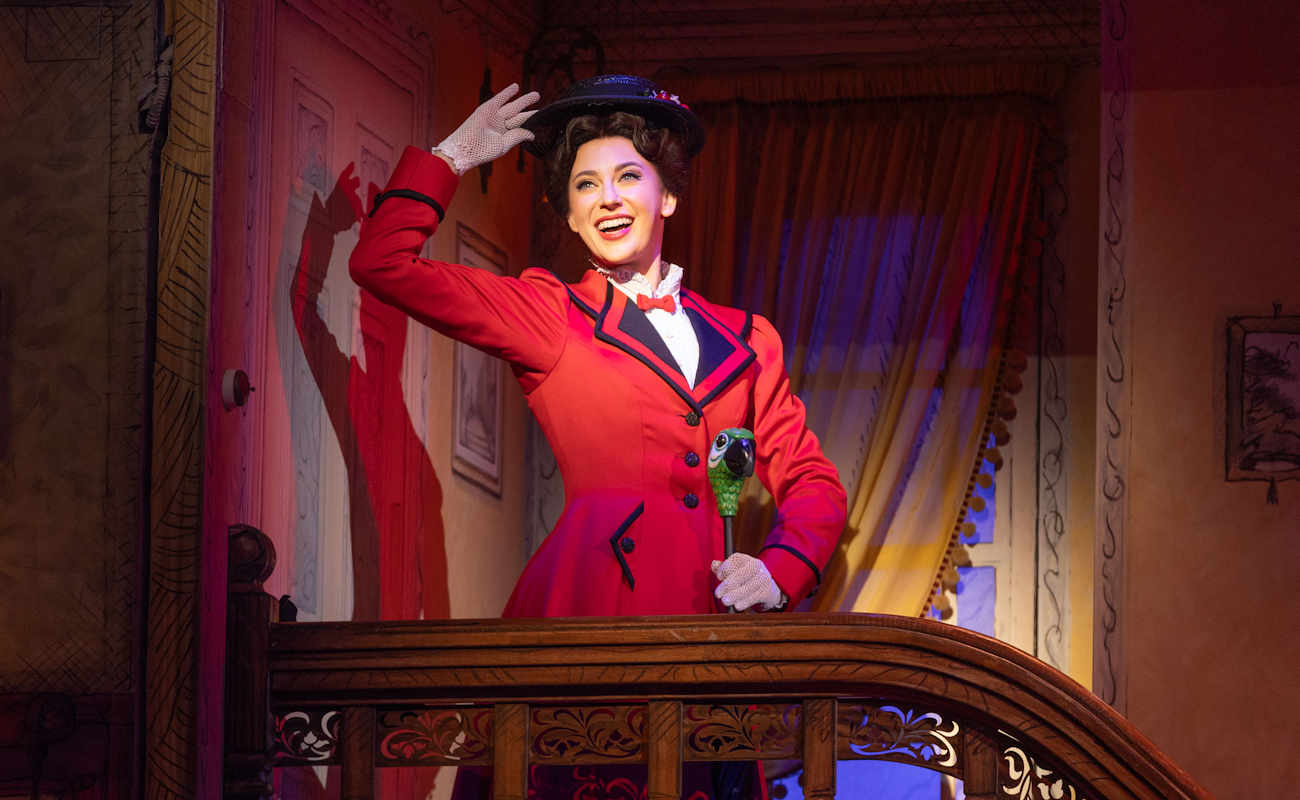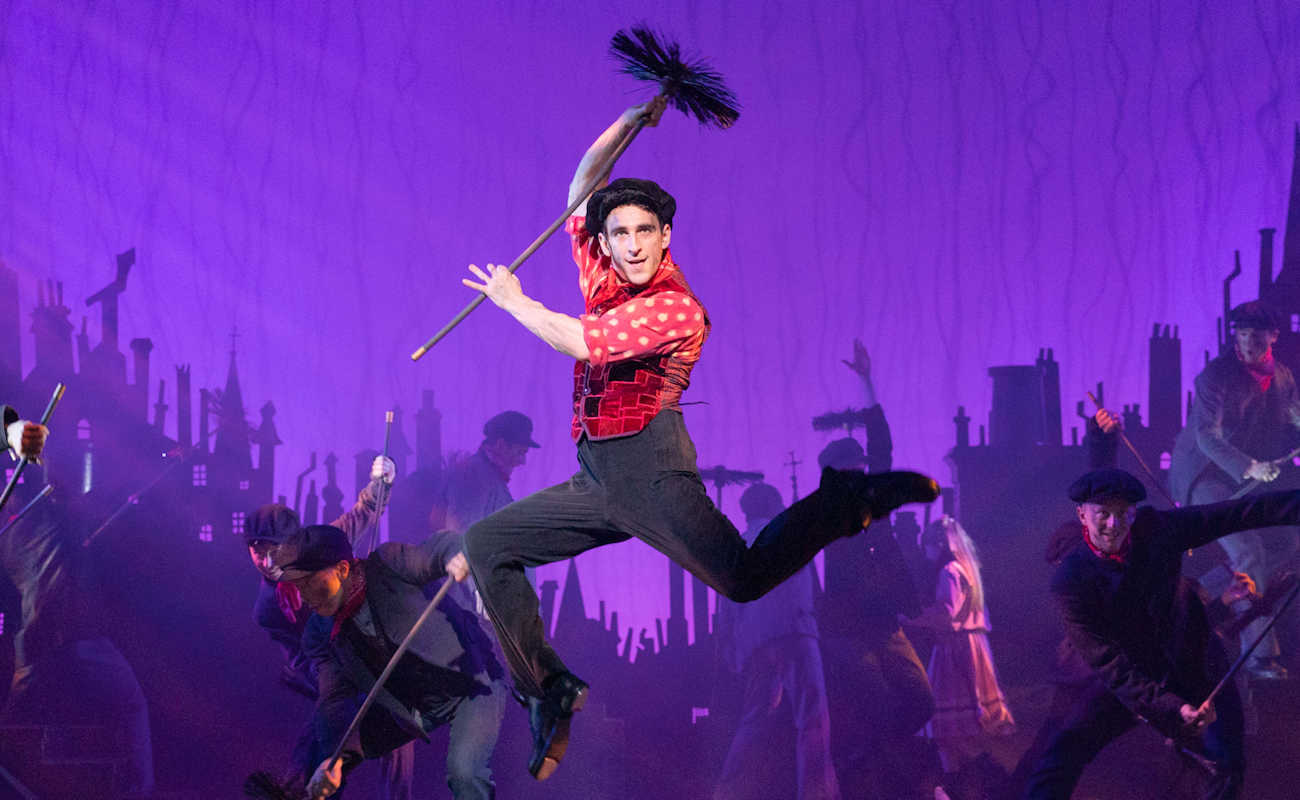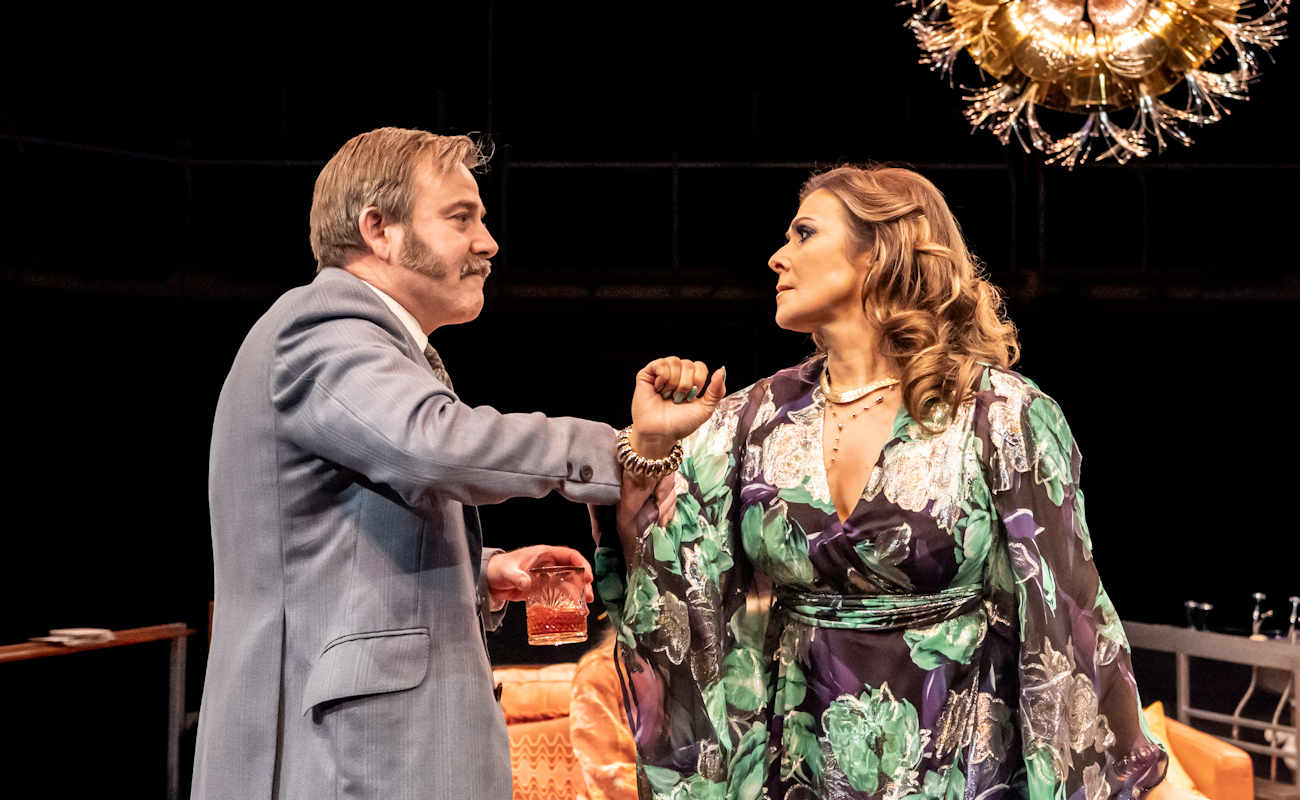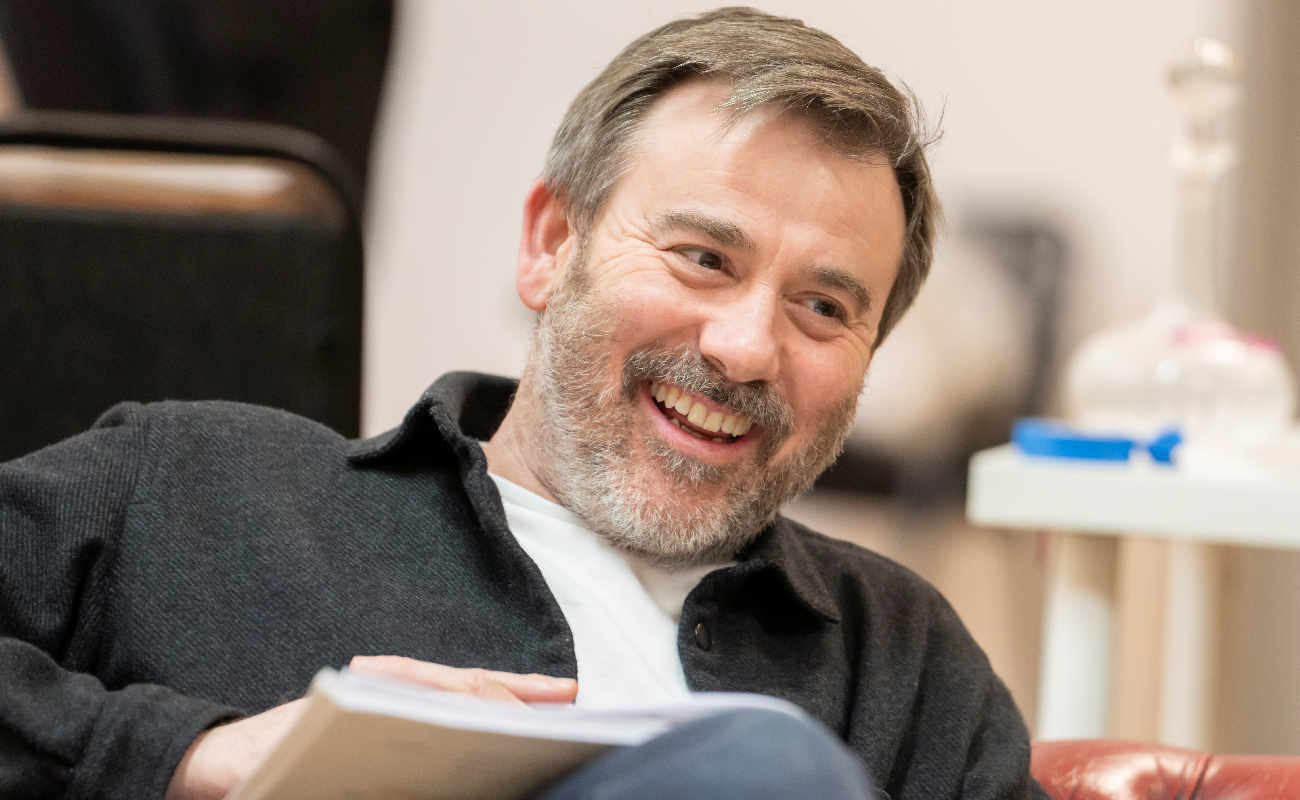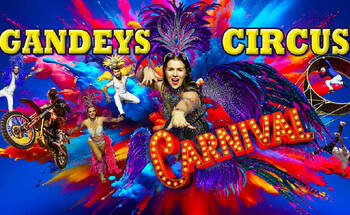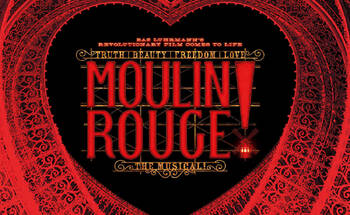Manchester Theatre News & Reviews
REVIEW - Will Tell & The Big Bad Baron Perfectly Hits The Target
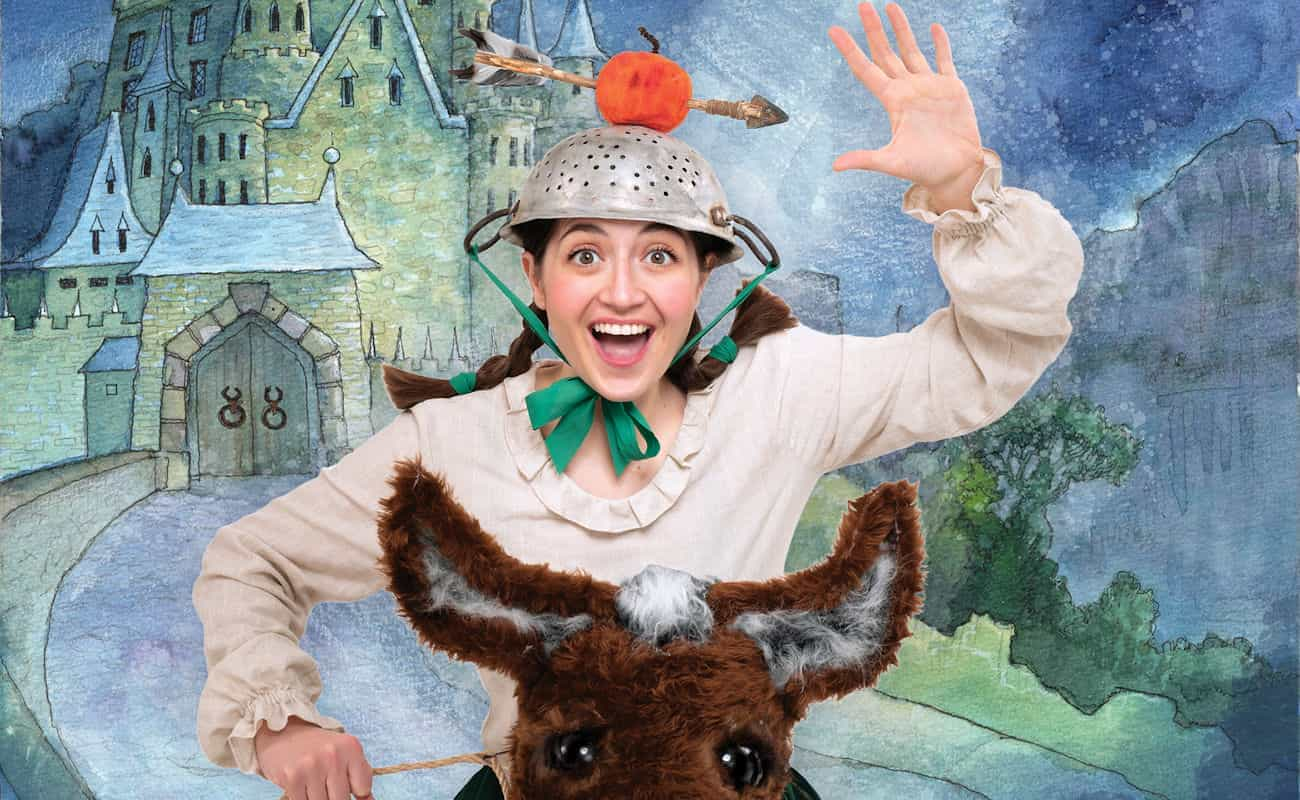 Watch The Trailer
Watch The Trailer
On Sunday, we paid to be in the audience of Will Tell & The Big Bad Baron at The Lowry. Read what our reviewer Neil Jones had to say about this warm family show...
I'll be honest, I don't normally attend theatre shows aimed at kids and their families, however having a close interest in the story of William Tell, due to the fact that I live in Switzerland for as long as Brexit's 90 day allowance permits, and I am currently writing a book retracing the most influential travel guide of all time, John Murray's 1838 Handbook for Travellers in Switzerland - which also addresses the Swiss obsession with their national hero, - I took it upon myself to borrow two little cherubs for the day as an excuse to check out Fideri Fidera's production when it visited Salford Quays.
"So..." I asked my two nephews (aged 4 and 7), as we queued to get into the Aldridge Studio at The Lowry, looking out across the Manchester Ship Canal to Old Trafford Football Stadium, where their introduction to watching the current terrible United team has been similar to my own experience in the 1980s, "what do you know about William Tell?"
"Nothing," and "Who is Willy Amtell?" came the honest replies, followed by "Can we have some crisps?"
Other than the additional spending, this was actually the answer I was hoping for, as I was looking forward to seeing their reaction, as the Brighton-based Anglo-Swiss theatre company would go on to both entertain and educate them about the story of the "Swiss Robin Hood," (although in truth, the 15th Century legend, set in 1307, is less Sherwood Forest and more Nordic Pine, having been predated by an almost exact 12th Century Danish tale, and similar 13th Century Norwegian and Faroese versions).
The two-hander show, which premiered at the Edinburgh Fringe in 2022, introduces kids to the character of Wilhelm Tell by telling (no pun intended) his famous story through the words of his daughter, Wilhelmina Tell, played by the brilliant Natasha Granger.
Addressing the audience directly, she regaled the famous tale, diverging slightly - for the purpose of a male and female two-hander, - from Friedrich Schiller's famous 1804 play, Wilhelm Tell (fun fact: the influential German playwright never even visited Switzerland during his lifetime).
She explained how her father had been imprisoned, not, as I and any historians in the audience were expecting, by the Austrian tyrant Albrecht Gessler, but instead by the evil Baron Boris von Bummelkrachenhofer; the name switch presumably made as "Gessler" is obviously somehow harder than "Baron Boris von Bummelkrachenhofer" to fit into not just one song, but two.
Seriously! Natasha Granger and Jack Faires deserve an Ivor Novello Award for their efforts, and we found ourselves singing and laughing along too.
The Baron, who shared an uncanny resemblance to a certain bumbling British Prime Minister, had arrested Tell for refusing to bow in his presence and kiss his hand.
He offered to let the Swiss master archer go free if he could shoot an apple, from a distance, with a crossbow, not - as in the legend - off his son Walter's head, but instead from Wilhelmina's pretty bonce.
In a very clever and entertaining reinactment of the famous shot, Wilhelmina explains how her father was successful in hitting the apple but is betrayed by the baron who refuses to keep his word, blatantly lying to Tell - presumably why the name Boris was chosen - and imprisons him regardless.
Here, the rest of the show diverges from the original legend - something that the Fideri Fidera Theatre Company would not have dared to do in 1760, when the residents of Altdorf had destroyed copies of Gottlieb Emanuel von Haller’s "Guillaume Tell, Fable Danoise" and, in 1860, burned an effigy of the historian Joseph Eutych Kopp, after both had dared suggest the legend was indeed fiction and an exact copy of the Danish saga of Palnatoki.
In fact, questioning the truth of the tale would remain a very hot political potato in Switzerland right through until 1891, with the rural Catholic cantons of the country accusing the sceptical urban Protestant cantons of attacking their history.
Thankfully, times have changed since then and, instead of Tell escaping his captors while being transported by boat in a storm, in Will Tell & The Big Bad Baron, Wilhemina goes on a quest to find her father by cleverly disguising herself as the male knight errant Will von Pumpernickel, using only kitchen utensils chosen by three willing participants from the audience.
In her quest, we are introduced to the Baron's banished daughter Edeltraut von Bummelkrachenhofer - both father and daughter are superbly played by Jack Faires; the joke of "some people think I look like my father" amusing the parents but, just like Wilhelm Tell's arrow, going straight over the head of the engrossed children in the audience.
In the comical adventure that follows, there's singing along to genuinely funny songs, hilarious dancing, great puppetry and a few "he's behind you" pantomine moments, which had the kids in the audience shouting, clapping and laughing along throughout.
There seemed to be a few Swiss families in the theatre and plenty of kids with grandparents (presuming they were not also fellow authors having borrowed children as an excuse to attend too), and the genuinely loud laughs throughout the show seemed to be shared equally between young and old.
The production quality of Marina Kobler's small stage set, costumes and puppets was incredibly impressive - reminiscent of the travelling shows of the 1800s - and a joust between Wilhelmina - or should I say, Will von Pumpernickel, - on a donkey, and the baron, on his black stallion, involved creative hobby horse designs which the kids in the audience were eager to meet after the show.
The battle was aptly soundtracked to Rossini's William Tell Overture and, alongside the frequent Swiss chocolate box folk and laendler music, helped transport the audience to the Alps, with the script also including many German and Schweizerdeutsch words and phrases throughout to intelligently reinforce the story's origins.
In fact, I don't think I have laughed as much about such simple props since seeing Trevor & Simon's 2001 adult-orientated Circus of Evil, in which Rasputin mysteriously glided across the stage (a scooter hidden underneath his monk's robe with false arms, being the secret there); although that hysterical sketch also involved an "accidentally" exposed very large dildo (a word you probably didn't expect to read in a review of a children's theatre show). Swing your pants, indeed!
Like that Trevor & Simon show, Will Tell did suffer from a very brief lull in proceedings and some of the more restless kids in the audience started to get fidgety at one point, although, looking around the auditorium, I was fascinated by the reactions of the majority of the other children, who were deeply engaged in the story.
This only highlighted to me the difficulty in writing a production for children of different ages and varying attention spans, let alone their adult companions, and other than the missed opportunity for a few fart jokes after Wilhelmina had spiked the Baron's drink with a sleeping potion - the kids in the audience still screaming with laughter at his loud snoring - I was mightily impressed with writer and director Colin Granger's efforts.
And this leads me to the finale.
Throughout the show I was wondering how on earth they were going to introduce the rescued William Tell, given that the only two actors on the stage were already preoccupied with other characters. The answer, well, I will leave that as a suprise, as it was truly clever and utterly hilarious.
After a "Val-de-ri, Val-de-ra, Val-de-ri, Val-de ha ha ha ha ha ha" sing-along, at least from the grandparents and Oktoberfest-attending adults in the room, to the German folk song "The Happy Wanderer", the kids were invited on stage to meet the two magnificent actors and puppets, and a truly entertaining hour had flown by.
While the show had merely introduced the legend of Wilhelm Tell to my nephews - for the full story, I guess some bedtime reading is required, or a visit to the Tellspiele open air theatre show in Interlaken, which recreates Schiller's play using 140 actors, horses, cows and goats - I couldn't help but wonder how a larger production of either the original legend or Will Tell & The Big Bad Baron would appear in the hands of this fantastic theatre company, set on a larger stage with a bigger cast and budget.
I'll certainly be "borrowing" my nephews again to check out Fideri Fidera's other productions and I hope to see this particular show return to the region in the future, not least as other families should be given the opportunity to see it.
"So, what was your favourite bit?" I asked my two young companions on the way out.
"The fighting and the donkey," replied the younger.
"I liked the dancing and the crisps," replied his older brother.
"Oh, yeah, the crisps!" added the four year old, reinforcing the advantages of being an uncle; you can just give the little brats back to their parents after you've used them to visit places and shows you would normally look out of place without a child.
WE SCORE WILL TELL & THE BIG BAD BARON...
Fideri Fidera's Will Tell & The Big Bad Baron is currently touring the country in 2023.
Images © 2022 Roarke Pierce.
